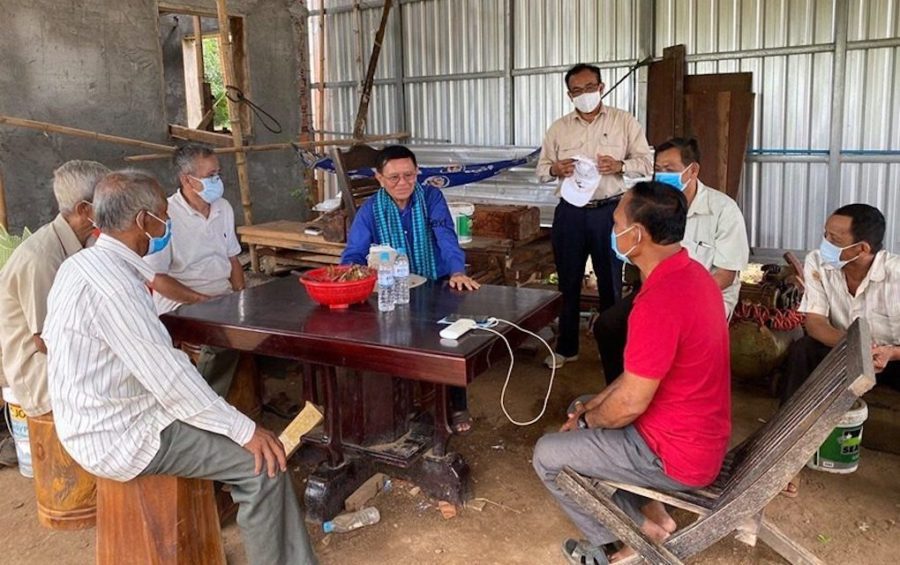The Phnom Penh Municipal Court has issued a reminder to Kem Sokha, president of the outlawed opposition CNRP, after authorities accused him of violating his bail terms by visiting supporters.
Judicial police who had been monitoring Sokha reported to the court that he was visiting people and gathering his supporters, especially in the provinces, presiding Judge Koy Sao said in a letter.
Following his 2017 arrest and 2018 release on bail, Sokha has been on trial since January for allegedly conspiring with a foreign power to overthrow the government, a charge which he denies. He faces up to 30 years in prison if convicted.
The trial had been stalled since March due to health concerns related to the Covid-19 pandemic. Sao did not say when the trial would resume in Monday’s letter.
As part of the conditions of his bail, Sao said in the letter that Sokha could not perform political activities, and that the CNRP co-founder’s recent actions could stretch the limit of his bail terms, or break them.
“In order to make sure that duties under the court supervision have been followed, as well as [to ensure] the personal security and the legal benefits of the accused for the next hearing, the penal judges do remind the accused that he needs to maintain the spirit of firm and serious respect and adhere to the duties that the court required of the accused,” the letter says.
Sao referred further questions to court spokesperson Y Rin, who also declined to comment and referred a reporter back to the letter.
Sokha was released from prison in September 2018 and confined to de facto house arrest, but the court adjusted his bail terms last November, allowing him to leave his home, as long as he regularly reported to local authorities, and banning him from leaving the country or conducting political activities.
The Appeal Court ruled in May in favor of a lower court decision that allowed prosecutors to introduce new evidence into the trial — more than two years after Sokha’s arrest.
Chan Chen, a defense lawyer for Sokha, said the court did not specify what would be considered political activities under the terms of his client’s bail.
Chen said that Sokha had traveled to at least eight provinces in the south and northwest of the country this month, generally traveling with a group of four or five people. Among his trips, Sokha visited the family home of slain political analyst Kem Ley in Takeo province on July 10, the fourth anniversary of the popular government critic’s murder. Sokha also worshipped at the Preah Ang Chek Preah Ang Chorm shrine in Siem Reap on Saturday.
On Sunday, Sokha expressed his gratitude on Facebook to monks of Phnom Penh and the provinces who he had recently met during his travels.
“I still miss and want to meet, listen and talk [to people] and ask how they are doing in other places whenever I have a chance,” Sokha said. “I wish for people to have good health.”
Throughout May and June, Sokha also met with officials from various Western embassies, including ambassadors to the E.U., France, Australia and the U.S., among others.
Meng Sopheary, another defense lawyer for Sokha, largely dismissed the court’s letter, saying that she thought it was just a reminder to her client. Sopheary said the CNRP leader clearly understood the terms of his bail, adding that holding religious ceremonies and meeting former colleagues and friends did not violate the court’s conditions.
“He has the right to meet with politicians, former colleagues to express that he misses them, as well as visiting others,” Sopheary said. “He has the right to travel for leisure. He has the right to hold other rituals and ceremonies.”
(Translated and edited from the original article on VOD Khmer)












